For the past 17 years, Neet Hada has been helping stray animals—dogs, cats, donkeys, horses, goats, and birds—in Rajasthan, a state located in the northwestern part of India. He created the Kotawafa Animal Rescue all on his own in 2001, which stands for Kota (the city he is based in) and WAFA (an acronym for We Are For Animals). The independent rescue aims to help animals in need, encourage animal adoptions, and teach people how to create better relationships with their pets. With a focus on roadside treatment and feeding of strays, Kotawafa Animal Rescue hopes to show neglected and abandoned animals that there are people who care.
Help out by donating to Kotawafa Animal Rescue
With your kind assistance, Kotawafa Animal Rescue can rescue, rehabilitate, and rehome more animals in Rajasthan, India.
Waldo’s Friends (WF): Hi Neet! Could you share a brief history on how the rescue came about?
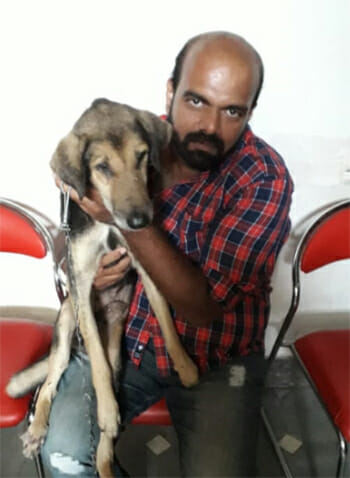
Neet Hada (NH): Almost 18 years ago, I saw a dog sitting near a shop. He was looking at everyone as if he was hungry. I decided to give him a biscuit, and I saw how his eyes lit up. He came to me with love in his eyes. That was a life-changing moment for me. Since that fateful day, I haven’t stopped helping animals. I have been running Kotawafa on my own over the last 17 years, but now, I have 22 members involved with it.
WF: What’s a regular day like for you when you do work for Kotawafa Animal Rescue?
NH: I am always with my team, mostly doing rescues. I try to teach them how to handle different types of rescue cases so that they can go on their own without me.
WF: What would you say has been the rescue’s most effective campaign over the years?
NH: The most effective campaign I’ve organised is “Cruelty Case Bravo” which helped a stray dog named Bravo. He was beat up badly, got dragged from a vehicle, and ended up with one eye that was severely damaged. When I received the call, my team and I just went there to try and save him. His condition was critical, but the vet did his best to save him. After a few months, he slowly recovered. His eye was successfully closed through an operation. He came to the shelter where we regularly fed him and gave him his prescription.
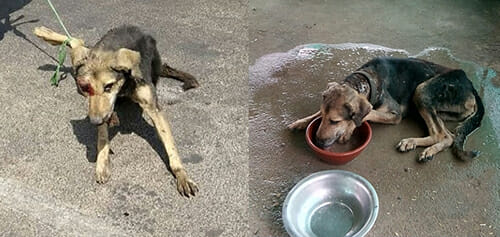
We posted his story on social media, and one non-government organisation in Canada showed interest in adopting him. But the challenge was to make sure he was fit enough to travel—we had to monitor his health and produce a medical fitness certificate. In the next few months, his blood reports came back all good, so I drove Bravo to Delhi by car. After having his last round of check-ups, he got the go signal to fly to Canada! He is now enjoying his new life with love, care, and happiness. I really miss him, but I’m happy for him.
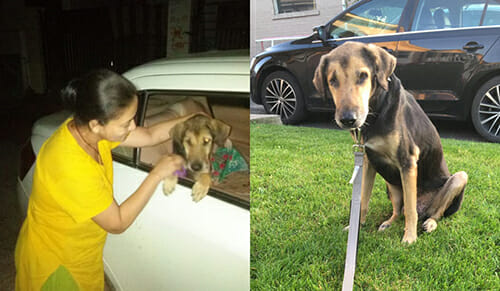
WF: Are there any funny anecdotes you can share involving the rescue?
NH: Funny things rarely happen in this type of job, but once, I got a call from a lady about a German Shepherd. She said that it was lying on the side of the road, not moving at all. She was worried that something bad had happened to him.
I went there to check up on the dog and found his owner standing right beside him. He told me that his dog is very lazy. Once the dog falls asleep, there’s no way you could wake him up even if you shout at him or try to move him.
WF: What do you think are the biggest misconceptions about the animal rescue industry? How do you and Kotawafa Animal Rescue address those fallacies?
NH: People think that animal rescue is just a waste of time. For them, animals don’t deserve to exist. These people just leave animals to die or suffer. Worse, they hit them. What they don’t understand is that God made these beautiful creatures. They are man’s best friend who are there to protect us without any profit. Some even serve us loyally.
Eighty percent of the times I rescue, I face these types of people. I try to talk to them and try to make them understand that animals are totally dependent on humans. What they need is love, care, and food, but they demand nothing from anyone.
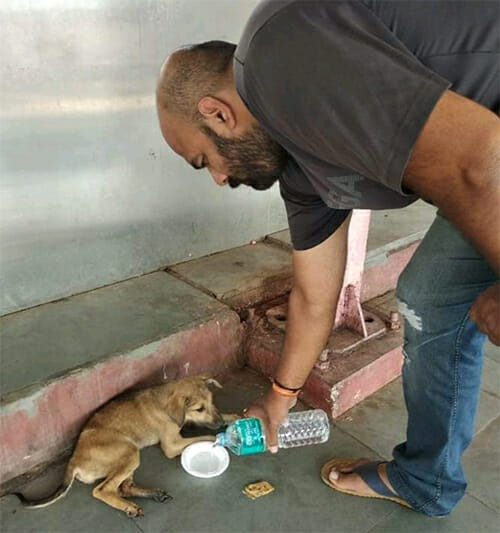
adequate food, shelter, and medical care
WF: What’s the best and worst thing about running an animal rescue?
NH: The best thing is the immense satisfaction I get knowing that I am doing what God sent me to do. The worst thing is trying to end animal cruelty and having sufficient funds, food, and treatment to help these animals.
WF: What is your advice for other volunteers involved in animal rescue?
NH: I’d tell them to join only those people who truly love animals. Be ready to rescue 24/7, help animals whenever and wherever needed, and do what is best for them.
WF: What is your advice for people interested in getting into animal rescue like you?
NH: Do it from the heart, with precautions and following the proper way. This is a duty that won’t give you money or rewards, but at the end of the day, you save someone’s life.
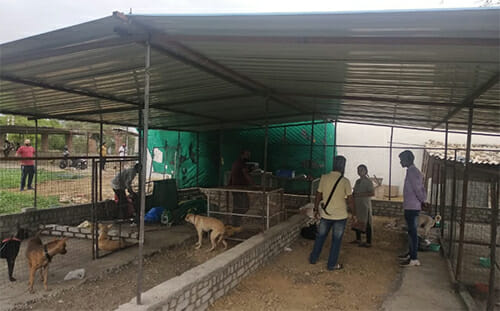
Follow Kotawafa Animal Rescue on Facebook and Instagram.
Read more rescue stories here! Do you know of any independent rescue shelters worth featuring in your neighbourhood? Share your suggestion with us by commenting below!
Leave a comment
Your email address will not be published. All fields are required.